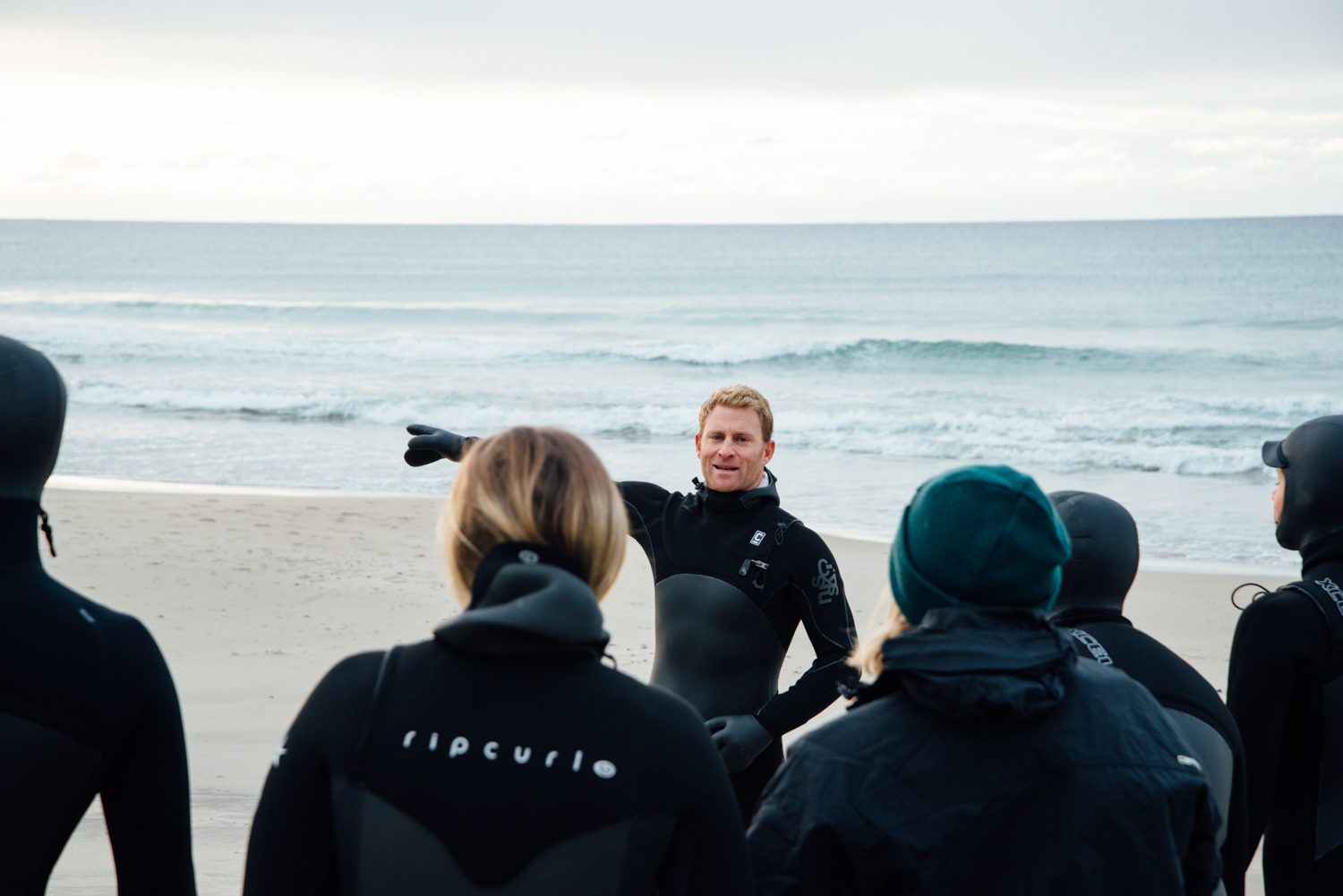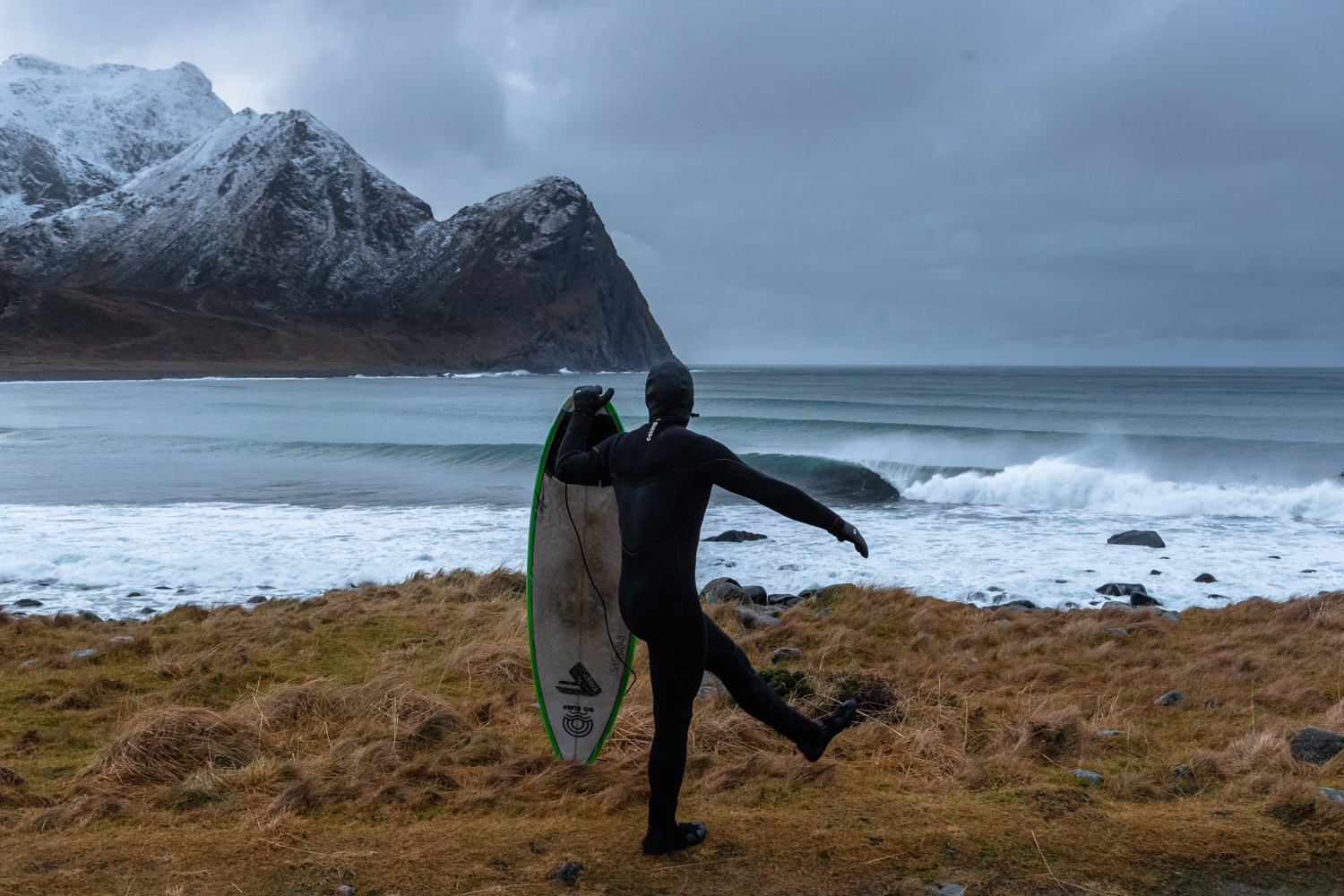ISA Course Presenter Shannon Ainslie has traversed the globe to leave his mark on surf students
Two decades ago Shannon Ainslie’s life took a dramatic turn that could have cost him everything, but has blossomed into a blessing in disguise.
While Surfing his home break of Nahoon Beach in South Africa, Shannon was attacked by not one, but two great white sharks. With his hand clenched in a shark’s jaw, he managed to escape and make it to safety – surviving an experience that would teach him a lifetime’s worth of lessons.
Shannon emerged from his shark attack eager to have a positive impact in the world and make a difference. He discovered his outlet to have that lasting impact through surf coaching – starting his own school in South Africa and eventually heading up north to the Arctic Circle to train surfers and coaches in the frigid waters of Norway.
Now an ISA Course Presenter, Shannon trains the next generation of surf coaches and athletes, opening up his treasure trove of knowledge to his students.
Instead of us telling his whole story, we went straight to the source and caught up with the South African surf coach currently residing in Norway.
Meet Shannon Ainslie.
ISA: Tell us about your journey to becoming a surf coach. What excites you about teaching others to surf?
Ever since I had my double shark attack I wanted to get more involved in surfing to use it as a platform to not only teach surfing, but to teach life to people. It’s helped me walk roads with amazing people and also given me the chance to help others through surfing.
When I moved to Jeffreys Bay at the age of 19 I joined a surfers Bible school run by Des Sawyer. He helped me start a surf school and in the process I helped coach his son for many years who then became a pro surfer and WSL World Longboard champion (Steven Sawyer). I ended up coaching a lot of young kids who turned out to become really good and represent South Africa (also one representative for The Netherlands and one for Germany) at various ISA World Championships.
ISA: What is your core philosophy around surf coaching?
Having patience is super important as an athlete or a coach. The ocean and waves are constantly changing and each surfer will learn different things and learn them in different ways. I tell surfers that one of two things will happen in surfing. Either the wave will conquer them and it can get frustrating at times, or they can conquer the waves. When they conquer the waves and surf or ride them well it gives that rewarding feeling that you’ve conquered something that can conquer you and it gives you confidence and stoke, which is what every surfer wants to feel. This takes preparation and patience and that is important to understand.




